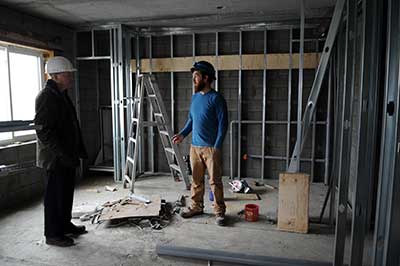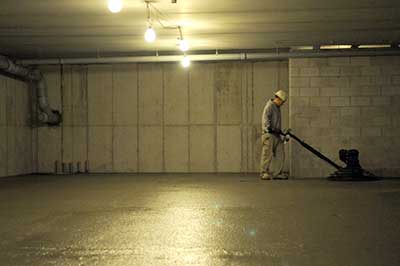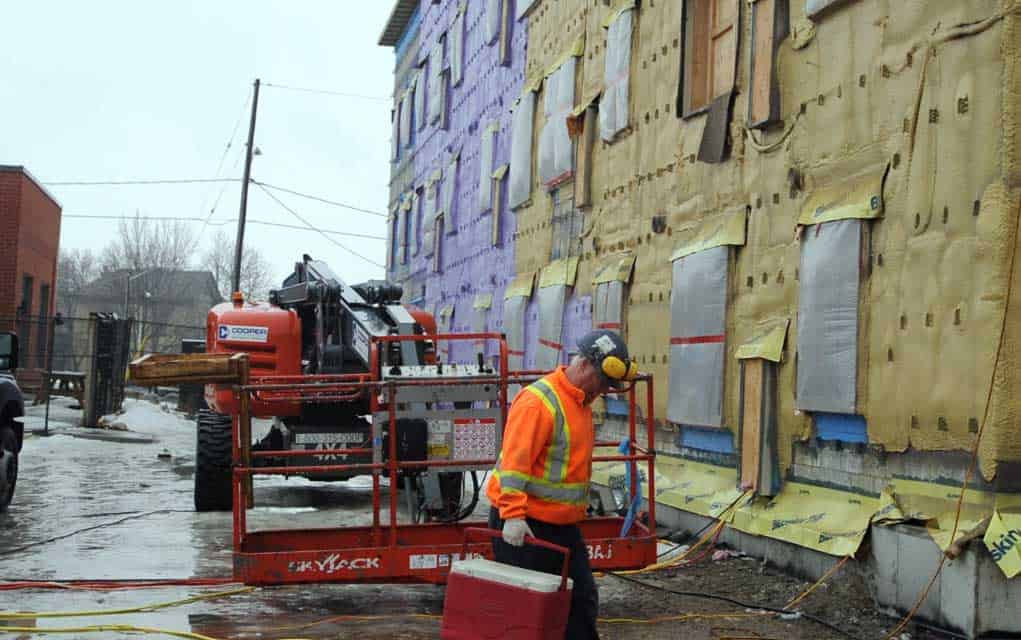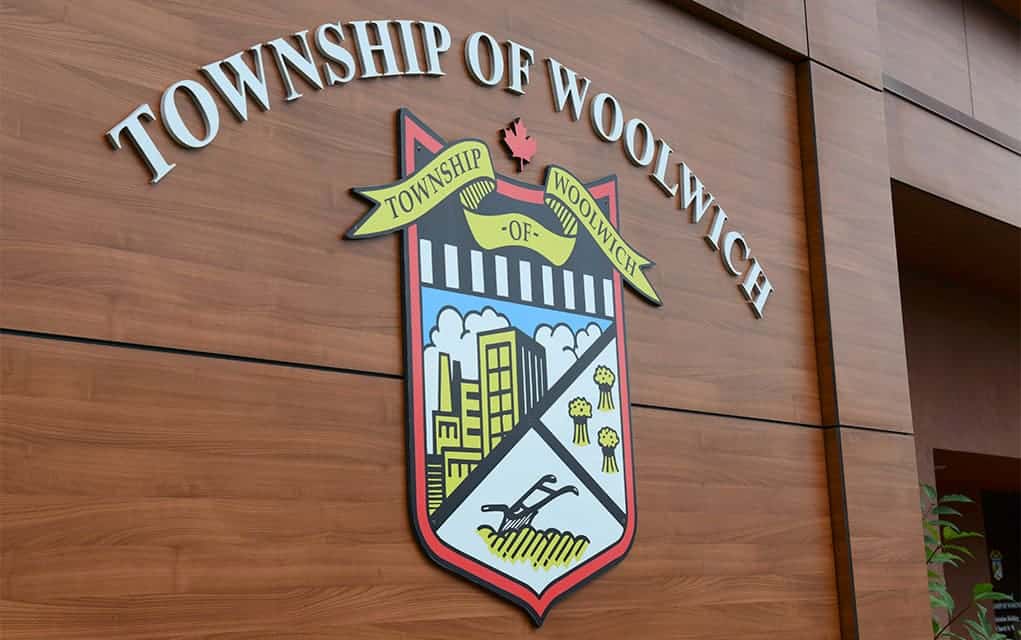MennoHomes is more than half a million dollars closer to their fundraising goal for the barrier-free affordable housing project under construction in Elmira thanks to an overwhelming show of financial support from the community.
After a group of interested donors came forward last fall willing to match up to $250,000 in donations made by the end of the year to MennoHomes, the community responded, donating a total of $286,812. With the anonymous donors matching the $250,000, this brings MennoHomes, $536,812 closer to their fundraising target.
There is still work to be done to close the gap between the $2.5 million donated and pledged and the overall fundraising target of $3.1 million, but executive director Dan Driedger is thrilled by the community response thus far.
“We were absolutely thrilled with that,” he said on site this week.
“The group that got together to create the match wanted to have a number that was ambitious, but achievable and how do you balance it? It ended up at that $250,000-mark and we thought that’s a big chunk of change and the community responded. It was incredible. I know there were folks who said ‘we had wanted to do something.’ They did extra because of that, they wanted to make sure that we fully utilized that match.”

The gap needs to be closed through additional fundraising and hopefully some cost-saving on the building. The annual bike-a-thon in June will go toward to housing project. They’re looking at doing the Drive a Ford event, which the Woolwich Community Lions Club did for a number of years to raise money for an accessible van for Elmira District Community Living.
Construction continues to move along on the affordable housing project and occupancy is slated for mid-summer.
One side of the first floor is comprised of two three-bedroom units and a two-bedroom unit between them. They all have patio doors that lead out the back of the building to shared green space. The other side has one-bedroom units. There’s a community room on the first floor as well.

“It got smaller when we had to put the barrier free washroom in, it took a big bite out of it. But it’ll have a small kitchenette area and a small office space here,” he said.
The community room has an exterior door so it could be rented out or someone could come in to provide an activity, like at their seniors’ building in Kitchener, which hosts fitness sessions for the tenants.
The second and third floors include one- and two-bedroom units.
One room in the basement will house storage lockers for the tenants. Another large room in the basement doesn’t have a planned use for it yet. The third room in the basement could be used for office space and will have a separate entrance.
The rents on the one-bedroom units are basically set because they were funded by the region and they’ll be on a sliding scale depending on tenants’ income levels. It’s the two- and three-bedroom units which are more apt to change.
“We had target rents when we initiated the project. It still has to carry itself. And then it’s a matter of what rents can we provide and still make it sustainable. And once we know what the rent levels will be then you can go out for applications because you can’t ask people to apply for accommodation and then have the rent be different than what they expected,” he said.

Some outstanding work like flooring and painting still need to be quote so once those final tenders are in they’ll be able to take a second look at the rent prices.
They’ve had over 200 households express interest for the 25 apartments. He expects they’ll start accepting applications in March.
“We have had already calls from people who have a family and somebody in the family needs the accessibility that’s going to be available here. They’ve got some sort of physical disability. And we often lament that there’s not enough housing for seniors with accessibility in town and yet there are at least some options for them and for a family household those don’t exist at all. Those are unique situations but this will start to address some of that.”









